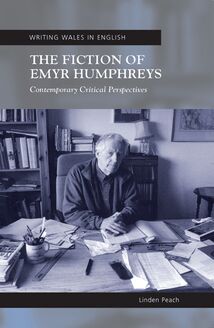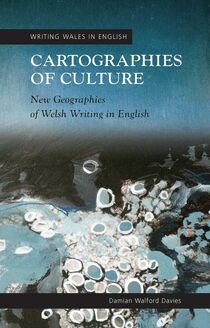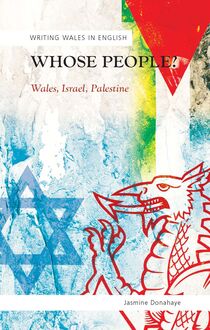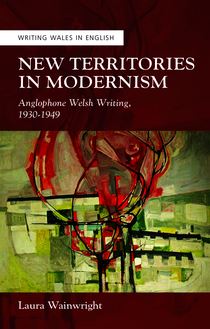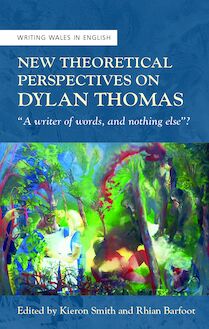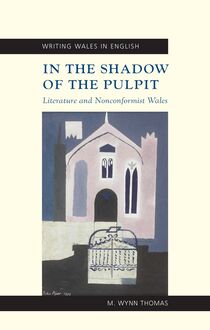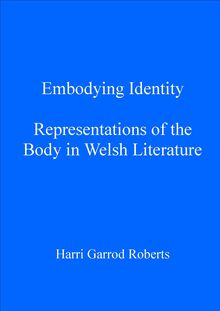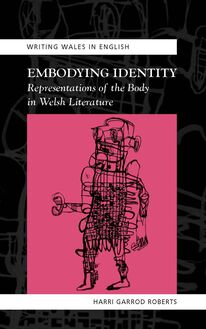-
 Univers
Univers
-
 Ebooks
Ebooks
-
 Livres audio
Livres audio
-
 Presse
Presse
-
 Podcasts
Podcasts
-
 BD
BD
-
 Documents
Documents
-
- Cours
- Révisions
- Ressources pédagogiques
- Sciences de l’éducation
- Manuels scolaires
- Langues
- Travaux de classe
- Annales de BEP
- Etudes supérieures
- Maternelle et primaire
- Fiches de lecture
- Orientation scolaire
- Méthodologie
- Corrigés de devoir
- Annales d’examens et concours
- Annales du bac
- Annales du brevet
- Rapports de stage
La lecture à portée de main
Vous pourrez modifier la taille du texte de cet ouvrage
Découvre YouScribe en t'inscrivant gratuitement
Je m'inscrisDécouvre YouScribe en t'inscrivant gratuitement
Je m'inscrisEn savoir plus
Vous pourrez modifier la taille du texte de cet ouvrage
En savoir plus

Description
In Wales Unchained Daniel G. Williams explores how Welsh writers, politicians and intellectuals have defined themselves – and have been defined by others – since the early twentieth century. Whether by exploring ideas of race in the 1930s or reflecting on the metaphoric uses of boxing, asking what it means to inhabit the ‘American century’ or probing the linguistic bases of cultural identity, Williams writes with a rare blend of theoretical sophistication and accessible clarity. This book discusses Rhys Davies in relation to D. H. Lawrence, explores the simultaneous impact that Dylan Thomas and saxophonist Charlie Parker had on the Beat Generation in 1950s America, and juxtaposes the uses made of class and ethnicity in the thought of Aneurin Bevan and Paul Robeson. Transatlantic in scope and comparative in method, this book will engage readers interested in literature, politics, history and contemporary cultural debate.
General Editor’s Preface
Acknowledgements
Introduction
1. The Lure of Race: Rhys Davies and D. H. Lawrence
2. Black and White: Boxing, Race and Modernity
3. Blood Jumps: Dylan Thomas, Charlie Parker and 1950s America
4. Class and Identity: Aneurin Bevan and Paul Robeson
5. To Know the Divisions: The Identity of Raymond Williams
6. American Freaks: Welsh Poets and the United States
7. Singing Unchained: Language, Nation and Multiculturalism
Sujets
Informations
| Publié par | University of Wales Press |
| Date de parution | 15 avril 2015 |
| Nombre de lectures | 0 |
| EAN13 | 9781783162147 |
| Langue | English |
Informations légales : prix de location à la page 0,0650€. Cette information est donnée uniquement à titre indicatif conformément à la législation en vigueur.
Extrait
Wales Unchained
Writing Wales in English
CREW series of Critical and Scholarly Studies
General Editor: Professor M. Wynn Thomas (CREW, Swansea University)
This CREW series is dedicated to Emyr Humphreys, a major figure in the literary culture of modern Wales, a founding patron of the Centre for Research into the English Literature and Language of Wales , and, along with Gillian Clarke and the late Seamus Heaney, one of CREW ’s original Honorary Associates. Grateful thanks are due to the late Richard Dynevor for making this series possible.
Other titles in the series
Kirsti Bohata, Postcolonialism Revisited (978-0-7083-1892-8)
Chris Wigginton, Modernism from the Margins (978-0-7083-1927-7)
Linden Peach, Contemporary Irish and Welsh Women’s Fiction (978-0-7083-1998-7)
Sarah Prescott, Eighteenth-Century Writing from Wales: Bards and Britons (978-0-7083-2053-2)
Hywel Dix, After Raymond Williams: Cultural Materialism and the Break-Up of Britain (978-0-7083-2153-9)
Matthew Jarvis, Welsh Environments in Contemporary Welsh Poetry (978-0-7083-2152-2)
Harri Garrod Roberts, Embodying Identity: Representations of the Body in Welsh Literature (978-0-7083-2169-0)
M. Wynn Thomas, In the Shadow of the Pulpit: Literature and Nonconformist Wales (978-0-7083-2225-3)
Linden Peach, The Fiction of Emyr Humphreys: Contemporary Critical Perspectives (978-0-7083-2216-1)
Daniel Westover, R. S. Thomas: A Stylistic Biography (978-0-7083-2413-4)
Jasmine Donahaye, Whose People? Wales, Israel, Palestine (978-0-7083-2483-7)
Judy Kendall, Edward Thomas: The Origins of His Poetry (978-0-7083-2403-5)
Damian Walford Davies, Cartographies of Culture: New Geographies of Welsh Writing in English (978-0-7083-2476-9)
Daniel G. Williams, Black Skin, Blue Books: African Americans and Wales 1845–1945 (978-0-7083-1987-1)
Andrew Webb, Edward Thomas and World Literary Studies: Wales, Anglocentrism and English Literature (978-0-7083-2622-0)
Alyce von Rothkirch, J. O. Francis, realist drama and ethics (978–1-7831–6070–9)
Rhian Barfoot, Liberating Dylan Thomas: Rescuing a Poet from Psycho-sexual Servitude (978–1-78316–210–9)
Wales Unchained
Literature, Politics and Identity in the American Century
Writing Wales in English
DANIEL G. WILLIAMS
© Daniel G. Williams, 2015
All rights reserved. No part of this book may be reproduced in any material form (including photocopying or storing it in any medium by electronic means and whether or not transiently or incidentally to some other use of this publication) without the written permission of the copyright owner except in accordance with the provisions of the Copyright, Designs and Patents Act 1988. Applications for the copyright owner’s written permission to reproduce any part of this publication should be addressed to the University of Wales Press, 10 Columbus Walk, Brigantine Place, Cardiff CF10 4UP.
www.uwp.co.uk
British Library Cataloguing-in-Publication Data
A catalogue record for this book is available from the British Library.
ISBN
978-1-78316-211-6 (hardback)
978-1-78316-212-3 (paperback)
eISBN:
978-1-78316-214-7
The right of Daniel G. Williams to be identified as author of this work has been asserted in accordance with sections 77, 78 and 79 of the Copyright, Designs and Patents Act 1988.
Cover image: Wales Unchained © Clifford Hayes, www.hayesdesign.co.uk
For Stefan Collini
the children will not repeat
the phrases their parents speak
somebody has persuaded them
that it is better to say everything differently
so that they can be admired somewhere farther and farther away
where nothing that is here is known
W. S. Merwin, from ‘Losing a Language’ (1988)
C ONTENTS
General Editor’s Preface
Acknowledgements
Introduction
1 The Lure of Race: Rhys Davies and D. H. Lawrence
2 Black and White: Boxing, Race and Modernity
3 Blood Jumps: Dylan Thomas, Charlie Parker and 1950s America
4 Class and Identity: Aneurin Bevan and Paul Robeson
5 To Know the Divisions: The Identity of Raymond Williams
6 ‘American Freaks’: Welsh Poets and the United States
7 Singing Unchained: Language, Nation and Multiculturalism
Notes
Bibliography
G ENERAL E DITOR ’ S P REFACE
The aim of this series is to produce a body of scholarly and critical work that reflects the richness and variety of the English-language literature of modern Wales. Drawing upon the expertise both of established specialists and of younger scholars, it will seek to take advantage of the concepts, models and discourses current in the best contemporary studies to promote a better understanding of the literature’s significance, viewed not only as an expression of Welsh culture but also as an instance of modern literatures in English worldwide. In addition, it will seek to make available the scholarly materials (such as bibliographies) necessary for this kind of advanced, informed study.
M. Wynn Thomas CREW ( Centre for Research into the English Literature and Language of Wales ) Swansea University
A CKNOWLEDGEMENTS
Although sections of each chapter in this book are here appearing in print for the first time and chapter 7 has never been published previously, the greater part of its contents is made up of revised versions and combinations of essays that first appeared in other forms. The earlier versions have been revised, extended and combined so that the volume has a thematic coherence. While readers will inevitably dip in and out of a collection of essays, I hope that some will want to follow the shape of the argument and read the volume, as intended, from beginning to end.
Wales Unchained was conceived during a period of research leave, funded by the Leverhulme Trust, at the department of Celtic Languages and Literatures, Harvard University. I am immensely indebted to Catherine McKenna for her support in making that visit possible, and to Werner Sollors for granting me the privilege of working in his study and devouring his basement library. Among the many pleasures of that research period was the chance to discuss literature and politics with Marc Shell, who gave generously of his time. Many of the ideas in this volume were initially tested on the unwitting members of my MA course on ‘Welsh Identities’ at the Centre for Research into the English Literature and Language of Wales, Swansea University, and at the stimulating annual conferences of the Association for Welsh Writing in English.
I have incurred the usual range of scholarly, practical and personal debts in writing this book, but am particularly grateful for the chance to thank Yasuo Kawabata, Shintaro Kono, Asako Nakai, Takashi Onuki, Yuzo Yamada and their colleagues contributing to the Raymond Williams Kenkyu-kai in Japan for giving debates in Welsh studies a prominent place in their work. Jane Aaron, Kirsti Bohata, Simon Brooks, Jasmine Donahaye, Katie Gramich, Melinda Gray, Tudur Hallam, Jerry Hunter, Matthew Jarvis, the late and sorely missed Nigel Jenkins, Dai Smith and Andrew Webb have all influenced my thinking on the issues engaged with in this volume. I owe an even greater debt to Tony Brown, M. Wynn Thomas and my father Gareth Williams who read and commented on drafts of the book. Any errors of judgement and dubious assertions are down to my obstinacy rather than any critical failures on their part. It was, as always, a privilege to work with the dedicated team at the University of Wales Press.
Further thanks are due to the editors and publishers of the various publications in which sections of these essays first appeared for allowing me to reproduce this material in revised form. Parts of the introduction appeared as ‘Back to a National Future’in Planet: The Welsh Internationalist 176 (April/May 2006), pp. 78–85. Chapter 1 is a longer version of ‘Withered Roots: Ideas of Race in the Writings of Rhys Davies and D. H. Lawrence’ which appeared in Meic Stephens (ed.), Rhys Davies: Decoding the Hare (Cardiff: University of Wales Press, 2001), pp. 87–103. Chapter 2 began life as ‘Black and White: Writing on Fighting in Wales’, in Peter Stead and Gareth Williams (eds), Wales and its Boxers (Cardiff: University of Wales Press, 2008), pp. 117–34. I am indebted to fellow literary critic and jazz musician Mark Osteen for his comments on an early draft of Chapter 3 in 2003. Some of this material appeared in a book chapter that I co-wrote with M. Wynn Thomas, ‘“A Sweet Union”? Dylan Thomas and Post-War American Poetry’, in Gilbert Bennett, Eryl Jenkins and Eurwen Price (eds), I Sang in My Chains: Essays and Poems in Tribute to Dylan Thomas (Swansea: The Dylan Thomas Society of Great Britain, 2003), pp. 68–79, and in ‘Wales-Bird: Dylan Thomas and Charlie Parker’, in Hannah Ellis (ed.), Dylan Thomas a Centenary Celebration (London: Bloomsbury, 2014), pp. 151–64. The research formed the basis for the ‘Dylan Live’ show, part of Literature Wales’s ‘Dylanwad’ projects for the centenary of the poet’s birth in 2014. It has been a privilege this year to work with poets Martin Daws, Zaru Johnson and Aneirin Karadog and the musicians Ed Holden (Mr Phormula) and Huw V. Williams in bringing 1950s New York to life, while exploring some of the resonances of Thomas’s life and work today. The lecture from which the show developed appeared as ‘The White Negro?’ in New Welsh Review 104 (summer 2014), 33–42. Chapter 4 develops ideas first presented in Welsh at the Institute of Welsh Affairs Annual Lecture, at the National Eisteddfod in Ebbw Vale, 2010. It was published in a bilingual booklet, Aneurin Bevan a Paul Robeson: Sosialaeth, Dosbarth a Hunaniaeth/Aneurin Bevan and Paul Robeson: Socialism, Class and Identity (Cardiff: Institute of Welsh Affairs, 2010). I am grateful to Paul Robeson’s grand-daughter Susan Robeson for her presence at the lecture and comments following its delivery, and for the responses of Leanne Wood AM. Chapter 5 draws on my ‘Introduction’ to Raymond Williams, Who Speaks for Wales: Nation, Culture, Identity , ed. Daniel Wil
-
 Univers
Univers
-
 Ebooks
Ebooks
-
 Livres audio
Livres audio
-
 Presse
Presse
-
 Podcasts
Podcasts
-
 BD
BD
-
 Documents
Documents
-
Jeunesse
-
Littérature
-
Ressources professionnelles
-
Santé et bien-être
-
Savoirs
-
Education
-
Loisirs et hobbies
-
Art, musique et cinéma
-
Actualité et débat de société
-
Jeunesse
-
Littérature
-
Ressources professionnelles
-
Santé et bien-être
-
Savoirs
-
Education
-
Loisirs et hobbies
-
Art, musique et cinéma
-
Actualité et débat de société
-
Actualités
-
Lifestyle
-
Presse jeunesse
-
Presse professionnelle
-
Pratique
-
Presse sportive
-
Presse internationale
-
Culture & Médias
-
Action et Aventures
-
Science-fiction et Fantasy
-
Société
-
Jeunesse
-
Littérature
-
Ressources professionnelles
-
Santé et bien-être
-
Savoirs
-
Education
-
Loisirs et hobbies
-
Art, musique et cinéma
-
Actualité et débat de société
- Cours
- Révisions
- Ressources pédagogiques
- Sciences de l’éducation
- Manuels scolaires
- Langues
- Travaux de classe
- Annales de BEP
- Etudes supérieures
- Maternelle et primaire
- Fiches de lecture
- Orientation scolaire
- Méthodologie
- Corrigés de devoir
- Annales d’examens et concours
- Annales du bac
- Annales du brevet
- Rapports de stage
